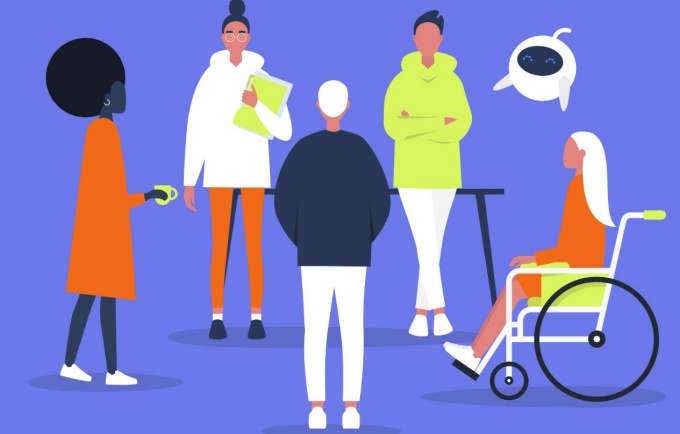Online Peer-Led Mutual Aid Groups

A model of support for field education and practice
During the COVID-19 pandemic, many of our students were feeling the effects of the crisis, and in need of additional support. At the same time, a number of students' field placements were disrupted, and the Field Education team at the UB School of Social Work hoped to engage these students in work that would be meaningful.

Larry Shulman, PhD
With that in mind, Dr. Lawrence Shulman, former dean and emeritus faculty, conducted a training called "The Dynamics and Skills of Leading Online Mutual Aid Support Groups for Peers: A Training Workshop for Student Group Leaders." Participating students were then deployed to provide online support, with additional training and supervision provided by the school.
The training workshop that follows focused on preparing peer leaders to respond to the day-to-day issues faced by students as they coped with the significant changes in their social work education and their lives. Peer-led groups are not the same as practice supervision groups and they are not the same as personal therapy groups. Peer-led mutual aid groups require trained leaders to contract with the support group members, keep the work focused on the appropriate areas of discussion, help individuals reach out for help and help other group members to provide it, and create a positive group culture.
Appropriate for practice settings and educational/fieldwork settings, peer-led groups are based on the assumption that student participants can provide support for each other through the processes of mutual aid, including the relief of finding they are “all in the same boat” and that others share their feeling and concerns. Participants can share steps they have taken to address these issues and identify sources of outside support, including family, friends and counseling when needed.
The Dynamics and Skills of Leading Online Mutual Aid Support Groups for Peers [videos embedded within each section]
In this video Dr. Laura Lewis provides some background on how the idea for a field unit focused on peer support was developed.
In this video, Dr. Lawrence Shulman provides an overview of the workshop and its intent.
In this video segment, Dr. Lawrence Shulman reviews the general principles of group work. He then goes on to explain the specific dynamics associated with peer-led mutual aid groups. Modeled here is the process of contracting with participants and navigating group dynamics in the online environment.
In this video segment, Dr. Lawrence Shulman elaborates on the definitions and strategies associated with the preliminary, contracting, middle and ending phases. Also discussed are issues of authority when groups are peer led, and the concept of the illusion of work.
In this video segment, Dr. Lawrence Shulman leads participants through the preparatory work of leading groups and the process of tuning in. The themes of uncertainty in the context of the pandemic, multiple, competing demands, and the grief and loss associated with the pandemic are discussed.
In this video segment, Dr. Lawrence Shulman leads participating students through scenarios in which they practice the skills of contracting, clarify purpose. Modeled are ways of responding to student-generated issues and concerns.
In this video segment, the ending phase of group work is discussed. Dr. Lawrence Shulman explores how to understand the group as a whole, and elaborates on the the role of the "deviant member."
Resources
Cohen, M.B. & Graybill, C.T. (2007). Using solution-oriented techniques in mutual aid groups. Social Work With Groups, 30(4), 41-58.
Shulman, L. (2018). The skills of helping individuals, families, groups and communities. Cengage.
Shulman, L. (1986). The dynamics of mutual aid. Social Work With Group 8(4), 51-60.
Steinberg, D.M. (2010). Mutual-aid: A contribution to best-practice social work. Social Work With Groups, 33(1), 53-68.
Tickell, P. (2020, March 25). Communities essential guide to digital tools for mutual aid groups: A toolkit for grassroots communities needing to move their work into the digital realm for the first time. Medium. https://medium.com/digitalfund/communities-essential-guide-to-digital-tools-for-mutual-aid-groups-c1664d30b525
Contact Us
Acknowledgement
Thank you to the following MSW students who came together, in the midst of a public health crisis, to assist in this initiative. Their leadership, generosity, flexibility and willingness to step into the unknown contributed to the project's success. They provided critical perspective and helped to shape our understanding of the role this model of peer-led mutual aid can play in supporting students and practitioners.
- Adrael Johnson
- Alexander Schmitt
- Brandy Sand
- Charles Petko
- Connor Gow
- Christina Vitelli
- Eden Barber
- Jacqueline Malcolm
- Jamie Jackson
- Kayla Napierala